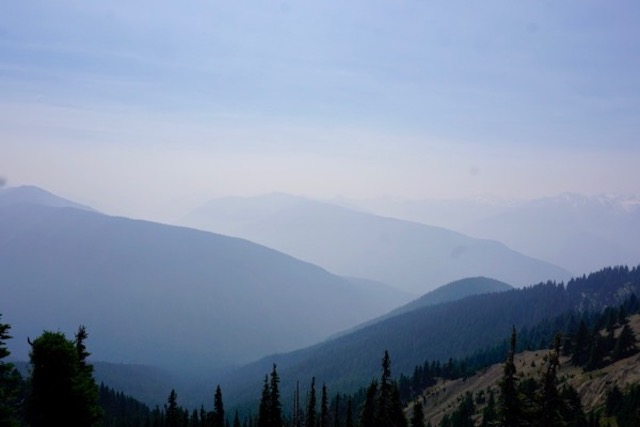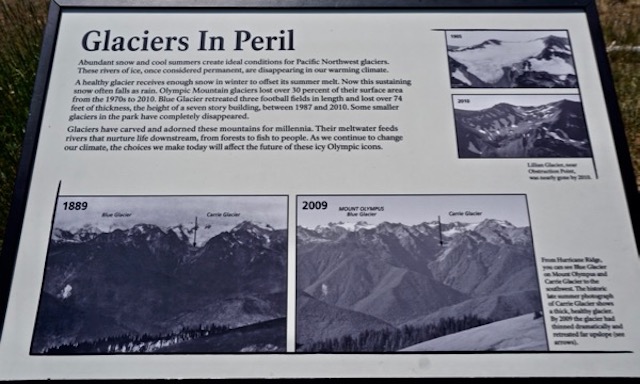Olympic Smokeout
We visited Olympic National Park last week (on August 9), and were literally smoked out (photo above) due to record wildfires in British Columbia, Canada.
According to the National Park Service, like Glacier National Park, Olympic NP is severely impacted by climate change:
Those impacts did not mention the smoke issue.
Here is US NOAA article on the BC wildfires that discussed the implications of climate change and wildfire (and the research article NOAA cites does not explicitly discuss all the fuel built up in the forest due to tree mortality caused by pine bark beetle (“flammable biomass”) – which is another impact of climate change):
The future of wildfires in Canada
Canada is the second most forested country on the planet, and thus, it contains a staggering number of trees. Recent research in the journal Environmental Research Letters and detailed in an article by the Globe and Mail highlights just how difficult fighting wildfires could become thanks to human-caused climate change.
One of the authors of the research, Dr. Mike Flannigan, explains that since climate change will make Canada hotter and drier, the forests will become drier, too, providing more fuel for fires and increasing their intensity. Flannigan mentions that while it is hard to predict, a 10 percent increase in the intensity of a fire could cause a doubling or tripling of the overall area burned.
The research suggests that under a business-as-usual greenhouse gas scenario over the next century, the number of days where conditions are favorable for wildfires to will increase by more than 50% in western Canada, increasing both the fire danger and the cost of fire suppression. Wildfires already pose a significant risk for parts of Western Canada and human-caused climate change could make things even worse. (emphasis mine)

